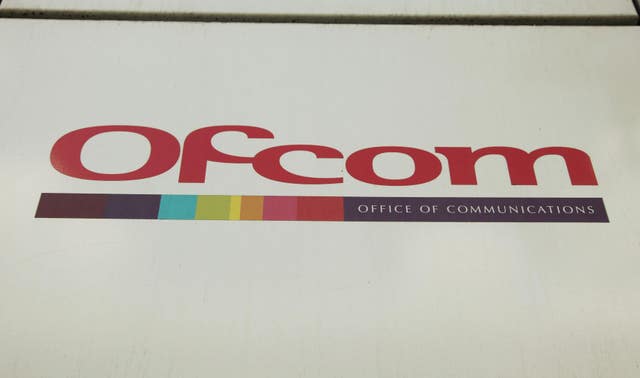
Audiences are getting more relaxed about swearing on TV and radio but are concerned about discriminatory language particularly around race, an Ofcom study has found.
The broadcast watchdog commissioned a survey looking at attitudes towards offensive language and found some terms can be used “to create dramatic impact, bring humour, reflect real life, or even to inform and educate”.
Ofcom said people had limited concerns about the strongest language as long as it was broadcast after the watershed and that “timely, genuine apologies” were important when offensive terms were broadcast on air.
For the study, participants were asked to rank how offensive certain swear words, racial and political terms, and sexual terms were.

It found terms like “A Karen” and “Gammon” were considered mild, words like “Homo” and “That’s Gay” in a derogatory tone were moderate, and the use of “nonce” as being “highly offensive and requiring clear and strong contextual justification”.
There was also discussion of terms relating to gender identity, with opinions divided on the term “queer” depending on how it was used.
The report said: “On the one hand, participants understood it had been used in a derogatory way in the past and felt it could be used to discriminate against LGBTQ+ people, for example by describing an individual as ‘a queer’.
“Using the word as an insult was widely seen as unacceptable for broadcast on TV or radio, without clear contextual justification such as in a drama or documentary about homophobia.
“However, participants in the general groups also noted that queer is included within the acronym LGBTQ+ and can therefore be used in a way that is not offensive to describe sexual identity and a broader community.
“They noted the use of the word in programmes such as Queer Eye and Queer as Folk, arguing that this word is now being used more widely within society including on TV and radio.”
There was a divide between the age groups surveyed when it came to the re-broadcast of programmes and films which no longer fit with current societal values.
It said some, “particularly older participants”, felt that older programmes or films depicting blackface still had a place on TV, while other, particularly young and black, participants “had very strong negative views towards blackface and considered it to be highly offensive”.
Adam Baxter, the watchdog’s director of standards and audience protection, said its assessors understand offensive language can be used to reflect real life or for dramatic impact, adding: “We always apply our rules in a way that takes into account creative freedom and expression.”
He added: “The research also shows an ongoing trend of increasingly relaxed attitudes about the use of swear words.
“Viewers and listeners had limited concerns, as long as the strongest language was broadcast after the watershed and parents were given sufficient information to inform their decisions about what their children could watch and listen to.
“On the other hand, reflecting heightened societal concern, audiences told us they felt increasingly worried about discriminatory language, particularly around race.
“Viewers and listeners said they expect broadcasters to take the utmost care to carefully contextualise the strongest forms of discriminatory language to ensure that audiences are protected.”


Why are you making commenting on The National only available to subscribers?
We know there are thousands of National readers who want to debate, argue and go back and forth in the comments section of our stories. We’ve got the most informed readers in Scotland, asking each other the big questions about the future of our country.
Unfortunately, though, these important debates are being spoiled by a vocal minority of trolls who aren’t really interested in the issues, try to derail the conversations, register under fake names, and post vile abuse.
So that’s why we’ve decided to make the ability to comment only available to our paying subscribers. That way, all the trolls who post abuse on our website will have to pay if they want to join the debate – and risk a permanent ban from the account that they subscribe with.
The conversation will go back to what it should be about – people who care passionately about the issues, but disagree constructively on what we should do about them. Let’s get that debate started!
Callum Baird, Editor of The National
Comments: Our rules
We want our comments to be a lively and valuable part of our community - a place where readers can debate and engage with the most important local issues. The ability to comment on our stories is a privilege, not a right, however, and that privilege may be withdrawn if it is abused or misused.
Please report any comments that break our rules.
Read the rules here